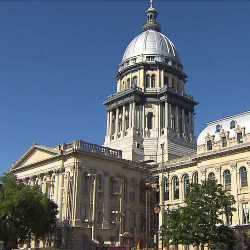UK Gambling TV Advertising Skyrockets in 2015

The latest figures out of the UK indicate that the country’s gambling firms are betting big on television advertising. Despite voluntary industry restrictions that prevent gambling ads from airing before 9:00PM, the amount spent by gambling companies on TV commercials has increased by 46 percent since 2012, and those numbers are raising some eyebrows among UK lawmakers, as well as gambling addiction awareness advocates. As Conservative MP Sir Peter Bottomley explained recently:
“I’m shocked by this level of spending, and disappointed that the level of gambling has risen so much. I believe we should be told the social and public costs of gaming which, to some people, has got out of control.”
Gambling Advertising by the Numbers
Some of the key facts and figures from the recent report show that:
– Sports betting, bingo and online casino game operators spent £118.5 million on television ads in 2015, up from £81.2 million in 2012.
– From 2012 to 2015, sports betting operators, bingo halls and online casinos have spent roughly £456 million on television advertising.
– Lottery firms spent £169 million on advertising from 2012 to 2015.
– Total figures for betting, gambling and lottery television advertising expenditures from 2012 to 2015 were a whopping £631 million.
What’s Behind the Advertising Boom
While there is no one answer to what’s driving gambling operators to invest heavily in television advertising, there are some possible theories. The European Cup 2016 tournament and the EU referendum are believed to have played a role, as gambling operators likely wanted to seize the opportunity to catch the interest of people tuning into the television for coverage of these events. The advertising best practices that gambling operators voluntarily comply with also have a loophole that allows for ads to be run earlier than 9PM during special events.
Industry insiders further believe that their competition for market share is at an all-time high, leading operators to try and drum up new business by tapping into TV audiences.
Concerns About Advertising
The 2007 Gambling Act allowed for many forms of gambling to be legal in the UK, but it did not place any regulations on advertising. One study found that the number of ads for gambling increased by 700 percent in the six years that followed the passage of the law.
A recent study conducted by the UK Gambling Commission found that gambling losses from January to September 2015 totaled a record £12.6 billion, up from £11.2 billion from the previous period. Many critics of the gambling industry are blaming the increase in television advertising ads for the rise in gambling losses. Others believe it is the increased availability of gambling coupled with the advertising boom that is responsible. As Derek Webb, the founder of the Campaign for Fairer Gambling, explained:
“They [gambling firms] need to keep acquiring new players because the nature of it is that they go broke, or lose whatever they can afford and decide not to play anymore.” Elaborating further, he added; “Bingo can advertise before the watershed but that bingo site might also own a casino site. Once you’re on the bingo site, you might be induced to click through to something else and then you’re on the slot machines all of a sudden.”
Number of Complaints Down
Reports like the ones that were recently made available to the public are beginning to spark a call for regulations regarding gambling advertising; however, information from the Advertising Standards Authority states that the number of complaints involving gambling ads has fallen every year from 2012 to 2015, sinking from 1152 complaints to 956 complaints. This indicates that while some lawmakers and advocates may be ready to lead the charge against gambling ads, the general public may not share their concerns.
In the meantime, Remote Gambling Association chief executive Clive Hawkswood said that it was correct to be concerned about the dangers associated with gambling, but that he did not believe that problem gambling was increasing exponentially. Gamcare is an organization which offers free counseling and support for problem gamblers, and as Clive Hawkswood explains:
“The number of calls to the Gamcare-run helpline are not a reliable indicator of problem gambling going up or down. We welcome the fact that the number has gone up because it hopefully reflects the additional funding that has been made available to promote the helpline and Gamcare services. The number is still well below the number of problem gamblers so, if anything, we would like to see the number of calls to Gamcare rise even higher.”










